第12章 BOOKS WHICH HAVE INFLUENCED ME(1)
THE Editor has somewhat insidiously laid a trap for his correspondents, the question put appearing at first so innocent, truly cutting so deep.It is not, indeed, until after some reconnaissance and review that the writer awakes to find himself engaged upon something in the nature of autobiography, or, perhaps worse, upon a chapter in the life of that little, beautiful brother whom we once all had, and whom we have all lost and mourned, the man we ought to have been, the man we hoped to be.But when word has been passed (even to an editor), it should, if possible, be kept; and if sometimes I am wise and say too little, and sometimes weak and say too much, the blame must lie at the door of the person who entrapped me.
The most influential books, and the truest in their influence, are works of fiction.They do not pin the reader to a dogma, which he must afterwards discover to be inexact;they do not teach him a lesson, which he must afterwards unlearn.They repeat, they rearrange, they clarify the lessons of life; they disengage us from ourselves, they constrain us to the acquaintance of others; and they show us the web of experience, not as we can see it for ourselves, but with a singular change - that monstrous, consuming EGO of ours being, for the nonce, struck out.To be so, they must be reasonably true to the human comedy; and any work that is so serves the turn of instruction.But the course of our education is answered best by those poems and romances where we breathe a magnanimous atmosphere of thought and meet generous and pious characters.Shakespeare has served me best.Few living friends have had upon me an influence so strong for good as Hamlet or Rosalind.The last character, already well beloved in the reading, I had the good fortune to see, I must think, in an impressionable hour, played by Mrs.Scott Siddons.Nothing has ever more moved, more delighted, more refreshed me; nor has the influence quite passed away.Kent's brief speech over the dying Lear had a great effect upon my mind, and was the burthen of my reflections for long, so profoundly, so touchingly generous did it appear in sense, so overpowering in expression.
Perhaps my dearest and best friend outside of Shakespeare is D'Artagnan - the elderly D'Artagnan of the VICOMTE DEBRAGELONNE.I know not a more human soul, nor, in his way, a finer; I shall be very sorry for the man who is so much of a pedant in morals that he cannot learn from the Captain of Musketeers.Lastly, I must name the PILGRIM'S PROGRESS, a book that breathes of every beautiful and valuable emotion.
But of works of art little can be said; their influence is profound and silent, like the influence of nature; they mould by contact; we drink them up like water, and are bettered, yet know not how.It is in books more specifically didactic that we can follow out the effect, and distinguish and weigh and compare.A book which has been very influential upon me fell early into my hands, and so may stand first, though Ithink its influence was only sensible later on, and perhaps still keeps growing, for it is a book not easily outlived:
the ESSAIS of Montaigne.That temperate and genial picture of life is a great gift to place in the hands of persons of to-day; they will find in these smiling pages a magazine of heroism and wisdom, all of an antique strain; they will have their 'linen decencies' and excited orthodoxies fluttered, and will (if they have any gift of reading) perceive that these have not been fluttered without some excuse and ground of reason; and (again if they have any gift of reading) they will end by seeing that this old gentleman was in a dozen ways a finer fellow, and held in a dozen ways a nobler view of life, than they or their contemporaries.
The next book, in order of time, to influence me, was the New Testament, and in particular the Gospel according to St.
Matthew.I believe it would startle and move any one if they could make a certain effort of imagination and read it freshly like a book, not droningly and dully like a portion of the Bible.Any one would then be able to see in it those truths which we are all courteously supposed to know and all modestly refrain from applying.But upon this subject it is perhaps better to be silent.
I come next to Whitman's LEAVES OF GRASS, a book of singular service, a book which tumbled the world upside down for me, blew into space a thousand cobwebs of genteel and ethical illusion, and, having thus shaken my tabernacle of lies, set me back again upon a strong foundation of all the original and manly virtues.But it is, once more, only a book for those who have the gift of reading.I will be very frank - Ibelieve it is so with all good books except, perhaps, fiction.The average man lives, and must live, so wholly in convention, that gunpowder charges of the truth are more apt to discompose than to invigorate his creed.Either he cries out upon blasphemy and indecency, and crouches the closer round that little idol of part-truths and part-conveniences which is the contemporary deity, or he is convinced by what is new, forgets what is old, and becomes truly blasphemous and indecent himself.New truth is only useful to supplement the old; rough truth is only wanted to expand, not to destroy, our civil and often elegant conventions.He who cannot judge had better stick to fiction and the daily papers.There he will get little harm, and, in the first at least, some good.